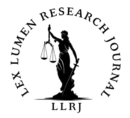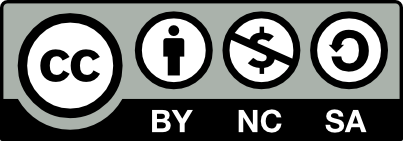Written by Tess Joy,
Intern-Lex Lumen Research Journal,
June 2025
The twentieth and twenty-first centuries witnessed the establishment of institutions aimed at addressing large-scale atrocities, with the foremost being the United Nations (UN) and the International Criminal Court (ICC). However, in the present day, as civilians experience bombardments within their residences, mass graves are revealed, and children face displacement or death, the international community persists in posing the same poignant question: Where are these institutions? Furthermore, and more urgently, why do they keep failing when they’re needed most in critical times? From Ukraine to Gaza and other crisis zones like Myanmar or Sudan, the world watches tragedy unfold on live television while the mechanisms of justice and accountability stall. The reasons behind this paralysis are complex but traceable: structural design flaws, political power games, and a growing global tolerance for selective justice.
The UN Security Council: Shackled by Veto Power
The United Nations Security Council (UNSC) is frequently regarded as the epicentre of international peacekeeping efforts. However, the five permanent members, namely the United States, the United Kingdom, France, Russia, and China, possess a significant privilege: the veto power. This authority, originally intended to ensure consensus among major powers, has rather evolved into an instrument of immunity. In the context of Ukraine, Russia has predictably obstructed any resolutions potentially holding it accountable for its 2022 invasion. Similarly, concerning Gaza, the United States has consistently exercised its veto to protect Israel from United Nations condemnation, even as the civilian toll rises and United Nations agencies issue warnings of a humanitarian catastrophe. This inherent flaw, which permits the aggressor or its ally to exercise veto authority over any measures of accountability, fundamentally undermines the primary objective of the Security Council. The Council frequently operates as a platform for geopolitical rivalry instead of serving as a moral compass.
The ICC: Ambitious in Principle, Toothless in Practice
The ICC was conceived to address the failures of ad hoc tribunals by creating a permanent venue to try war crimes, crimes against humanity, and genocide. But more than two decades since its founding, it remains hamstrung by jurisdictional limits and an image crisis.
Jurisdiction and Enforcement Gaps
The Rome Statute, which established the ICC, only binds states that ratified it.^5 Powerful nations like the United States, Russia, China, and Israel are not members. This means the court cannot prosecute crimes committed by their nationals unless referred by the Security Council, which, as we’ve seen, is unlikely due to veto politics.[6] Ukraine has accepted ICC jurisdiction, enabling the court to open a war crimes investigation and issue arrest warrants, including one for President Vladimir Putin for the deportation of children.[7] Yet, these warrants are mostly symbolic unless member states are willing (and able) to enforce them, which few are, especially when it involves a nuclear power leader.[8]
Palestine, a recognised member of the ICC, has formally requested investigations into crimes committed in Gaza. However, despite years of preliminary examinations and evidence gathering, progress remains frustratingly slow, hindered by diplomatic pressure and allegations of bias.[9]
A History of Selective Justice
The ICC has long faced criticism for disproportionately targeting African leaders. For years, nearly all of its active cases involved African states, prompting accusations that the court functions as a neo-colonial tool.[10] Although more recent investigations, including in Afghanistan, Ukraine, and Palestine, reflect a broader scope, the damage to its reputation lingers. The United States, for instance, imposed sanctions on ICC officials in 2020 after they launched an inquiry into alleged U.S. war crimes in Afghanistan.[11] When the most powerful nations in the world refuse to be held accountable, it sends a clear message: international justice is only for the weak.
Ukraine, Gaza, and the Pattern of Paralysis
Ukraine
Russia’s invasion of Ukraine in 2022 has produced chilling evidence of war crimes, summary executions, mass displacement, and the targeting of civilian infrastructure.[12] The ICC has taken commendable steps, including opening investigations and issuing arrest warrants.[13] However, without Security Council support or enforcement mechanisms, these actions remain symbolic gestures rather than instruments of justice.
Gaza
The Gaza conflict is a recurring tragedy marked by disproportionate use of force, civilian casualties, and alleged war crimes by both sides. The latest escalation has resulted in thousands of deaths and forced displacements.[14] UN officials have condemned both Israeli and Hamas actions.[15] Yet again, the U.S. veto has blocked concrete action in the Security Council.[16] The ICC, under immense political pressure, has made little visible progress in holding anyone accountable.
Other Crisis Zones Left Behind
Ukraine and Gaza dominate headlines, but they are not anomalies. Myanmar’s military has committed genocidal violence against the Rohingya with minimal repercussions. Syria’s use of chemical weapons was met with words, not justice. In Sudan, ICC-indicted war criminals still walk free.[17] These cases share a pattern: atrocities are committed; international outcry follows; investigations are launched, but justice remains deferred, often permanently.
What Needs to Change
- Security Council Reform
There must be serious discussions about restricting veto use in cases involving mass atrocities. Countries like France have proposed such reforms, but implementation remains elusive. Even a voluntary code of conduct could strengthen accountability mechanisms.[18]
- Strengthening the ICC
The court must reduce its dependency on state cooperation. This includes:
- Improving witness protection and evidence collection,
- Accelerating investigations,
- Applying consistent standards across all regions.[19]
- Regional Justice Alternatives
In the absence of effective global enforcement, regional human rights courts or ad hoc tribunals should be empowered to fill the gap.[20]
- Supporting Civil Society
Activists, NGOs, and journalists are often the first to document war crimes. Their work not only informs legal proceedings but also shapes public discourse. They deserve international protection and recognition[21]
Conclusion: A Crisis of Legitimacy
The inability of the UN and ICC to prevent or punish atrocities is not just a technical failure; it is a profound moral collapse. Each act of inaction signals to victims that the world has turned its back. Worse, it emboldens perpetrators to continue with impunity.
If international institutions are to survive this crisis of credibility, they must evolve fast. Otherwise, they risk becoming relics of noble intent, remembered not for what they achieved, but for what they allowed to happen.
- U.N. Charter art. 27, ¶ 3.
- U.N. SCOR, 8979th mtg.., U.N. Doc. S/PV.8979 (Feb. 25, 2022).
- U.N. SCOR, 9580th mtg.., U.N. Doc. S/PV.9580 (Feb. 2024).
- G.A. Res. ES-11/1, Aggression against Ukraine (Mar. 2, 2022).
- Rome Statute of the International Criminal Court. Ct. art. 13, July 17, 1998, 2187 U.N.T.S. 90.
- Id. arts. 12–13.
- Press Release, Int’l Crim. Ct., Statement on Arrest Warrant Against Vladimir Putin (Mar. 17, 2023).
- Max du Plessis et al., Complementarity: Beyond the ICC, Inst. for Sec. Stud. 17 (2006).
- Human Rights Watch, Israel/Palestine: ICC Should Investigate War Crimes (Feb. 2021).
- Kamari Maxine Clarke, Is the ICC Targeting Africa Inappropriately?, in Africa and the ICC 53–77 (2016).
- Exec. Order No. 13928, 85 Fed. Reg. 36139 (June 11, 2020).
- Amnesty Int’l, Ukraine: Summary Executions and Other War Crimes (May 2022).
- Al Jazeera, Putin Visits ICC Member States Despite Arrest Warrant (Oct. 2023).
- OCHA, Gaza Situation Report No. 39 (May 2024).
- U.N. Human Rights Council, Rep. on Occupied Palestinian Territory, U.N. Doc. A/HRC/52/76 (Mar. 2024).
- U.N. SCOR, 9580th mtg.., U.N. Doc. S/PV.9580 (Feb. 2024).
- ICC, Situations and Cases, www.icc-cpi.int (last visited June 18, 2025).
- Thomas G. Weiss, What’s Wrong with the United Nations and How to Fix It 45–52 (3d ed. 2020).
- William Schabas, An Introduction to the International Criminal Court 89–95 (6th ed. 2020).
- Rachel Kerr, The Int’l Crim. Tribunal for the Former Yugoslavia, in Int’l Justice in the Post-Cold War World 47 (2004).
- Human Rights Watch, World Report 2024 (Jan. 2024).


